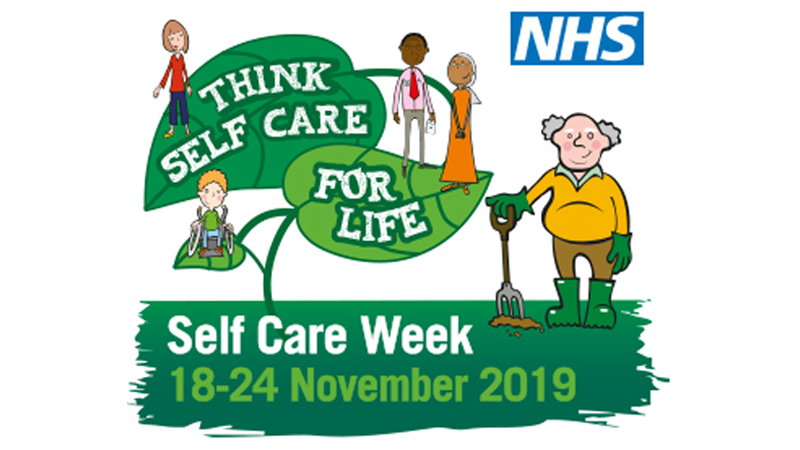National Self-Care Week 2019 – a role for the optical sector in supporting self-care
18 November 2019
This week is National Self-Care Week, a campaign to encourage a population that is living longer to take proactive charge of their health and make positive lifestyle choices. It is also an opportunity to educate patients on the most appropriate places to seek healthcare advice, such as visiting their optician when they are experiencing eye problems, rather than going to their GP or hospital. Encouraging this shift in attitudes is an essential part of lifting the burden on overstretched areas of the NHS.

From a primary eyecare perspective it is a chance to highlight the importance of regular sight tests as part of a good self-care routine, emphasising the benefits of detecting conditions – such as potential glaucoma and age-related macular degeneration – before any change in vision is noticed by the patient. We’ll be spreading the word via social media channels to support this message, so please retweet, like and share to amplify the message as it goes out.
It is also a good opportunity to promote the potential of primary eyecare to play a pivotal role in supporting the general population’s wellbeing. Thirteen million NHS sight tests are carried out every year – that means around 20% of the UK population visit an optical practice annually. For many this may be their only regular interaction with the NHS, but vision testing can often uncover wider wellbeing issues such as frailty, mobility problems and related health conditions. Right now there is little that an optometrist can do to help patients suffering from related conditions and this can be a missed opportunity to prevent incidents such as falls or health deterioration, which can often lead to much more serious and complicated long-term issues, which are not only distressing for patients, but costly to treat.
By commissioning services enabling opticians to signpost patients towards support for these concerns and to deliver complementary services in practice, the NHS could tackle wider issues linked to vision problems at an earlier stage and prevent more serious issues arising. We are already seeing LOCs taking the initiative to build connections with broader patient services, such as the northern region LOCs’ involvement in the national falls and frailty campaign and this is a very positive step.
Ultimately, with over 5,000 optical practices in accessible locations throughout England, there is strong potential for primary eyecare to reach a high proportion of the population with services and education that support a proactive approach to self-care; it’s an opportunity that shouldn’t be overlooked.

